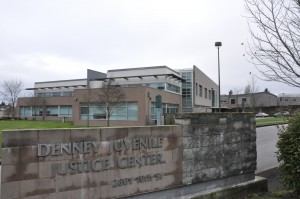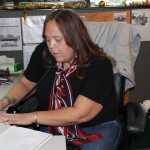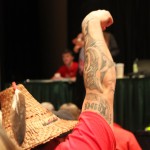Press Release from the Idle No More movement site http://idlenomore.com/ Jessica Gordon can be reached for inquiries here – Jessicagordonconsulting@gmail.com
Idle No More began with 4 women, Nina Wilson, Sheelah Mclean, Sylvia McAdam and Jessica Gordon, sharing a vision of bringing together all people to ensure we create ways of protecting Mother Earth, her lands, waters and people. The women began discussing the possible impacts that some of the legislation would carry if people do not do something. It became very evident that the women MUST do something about the colonial, unilateral and paternalistic legislation being pushed through the Government of Canada’s parliamentary system. They began with a piece of legislation called Bill C-45 which attacked the land base reserved for Indigenous people.
The women decided that they would call a rally to inform the public that this bill intended to, without consent give the minister of indian affairs power to surrender the lands reserved. They felt that this would ultimately make room for oil, nuclear and gas industries to tear up the land for profit. From this rally they also informed the public on other legislation that affected and ignored the treaties made with the crown but also the waters, land and people that it would impact in very harmful ways.
The women then helped other communities to coordinate efforts to hold similar rallies with the same goal in mind – Stand up and speak up against undemocratic and internationally illegal government acts. These rallies took place all across the country.
The women seen that there were many other communities that needed to come together in an act solidarity and resurgence to assert their inherent rights as a sovereign Nation, thus The National Day of Solidarity and Resurgence was called for December 10, 2012. This was an enormous event that never in history seen many nations and diverse groups of people come together. These events and acts have continued to grow and from the talk of grassroots has no intention of slowing down. The group called Idle No More have witnessed these events spreading out internationally within the united states as well as the United Kingdom sharing in helping to support our cause of opposing the government’s actions as well as support to asserting our Nationhood.
The women will continue and remain in a position to have the grassroots voices be heard by;
- Supporting and encouraging grassroots to create their own forums to learn more about Indigenous rights and our responsibilities to our Nationhood via teach-ins, rallies and social media.
- Build relationships and create understanding with allies across Canada.
- Take steps to contribute to building relationships with international agencies such as the UN to raise awareness to the conditions Indigenous people have been subjected to and assert our sovereignty in the international arena.
- Acknowledge and honor the hard work of all grassroots people who have worked, and continue to work towards these goals. They are the inspiration for IDLE NO MORE
Mission
Idle No More calls on all people to join in a revolution which honors and fulfills Indigenous sovereignty which protects the land and water. Colonization continues through attacks to Indigenous rights and damage to the land and water. We must repair these violations, live the spirit and intent of the treaty relationship, work towards justice in action, and protect Mother Earth. On December 10th, Indigenous people and allies stood in solidarity across Canada to assert Indigenous sovereignty and begin the work towards sustainable, renewable development. All people will be affected by the continued damage to the land and water and we welcome Indigenous and non-Indigenous allies to join in creating healthy sustainable communities. We encourage youth to become engaged in this movement as you are the leaders of our future. There have always been individuals and groups who have been working towards these goals – Idle No More seeks to create solidarity and further support these goals. We recognize that there may be backlash, and encourage people to stay strong and united in spirit.
We contend that:
The Treaties are nation to nation agreements between Canada and
First Nations who are sovereign nations. The Treaties are agreements that cannot be altered or broken by one side of the two Nations. The spirit and intent of the Treaty agreements meant that First Nations peoples would share the land, but retain their inherent rights to lands and resources. Instead, First Nations have experienced a history of colonization which has resulted in outstanding land claims, lack of resources and unequal funding for services such as education and housing.
We contend that:
Canada has become one of the wealthiest countries in the world by using the land and resources. Canadian mining, logging, oil and fishing companies are the most powerful in the world due to land and resources. Some of the poorest First Nations communities (such as Attawapiskat) have mines or other developments on their land but do not get a share o…
f the profit. The taking of resources has left many lands and waters poisoned – the animals and plants are dying in many areas in Canada. We cannot live without the land and water. We have laws older than this colonial government about how to live with the land.
We contend that:
Currently, this government is trying to pass many laws so that reserve lands can also be bought and sold by big companies to get profit from resources. They are promising to share this time…Why would these promises be different from past promises? We will be left with nothing but poisoned water, land and air. This is an attempt to take away sovereignty and the inherent right to land and resources from First Nations peoples.
We contend that:
There are many examples of other countries moving towards sustainability, and we must demand sustainable development as well. We believe in healthy, just, equitable and sustainable communities and have a vision and plan of how to build them.
Please join us in creating this vision.
Response to Legislation
Idle No More calls on all people to continue to oppose and reject all imposed legislation originating from the federal government. The unilateral imposition of these Bills is in direct violation of the Treaties and the Treaty relationship that the Original peoples of Turtle Island made with the British Crown. Indigenous peoples and nations have not been consulted and therefore, the actions taken by the federal government does not reflect the international standard of Free Prior and Informed consent. The continued imposition of federal legislation on Indigenous peoples and governments’ is not in line with the legal principles of “acting in good faith” and maintaining the “honour of the Crown”. There are many nations taking action(s) to reflect acts of Indigenous nationhood, sovereignty and jurisdiction in response to the passing of legislation such as Bill C-45 and we must continue on this path. When we stand strong and believe in our ways and assert acts of Nationhood, it does not matter what amount of legislation the federal government introduces or passes because it is not with our consent and therefore, is not applicable. Stand strong and believe in the spirit and intent of our Treaties as that’s what our ancestors are calling us to do.
We must continue to assert acts of nationhood premised on ancient ways and teachings that were given to us in our original instructions by Creator when we were placed here on Turtle Island. We encourage people to advocate for our Mother (the land), the Water (giver of life) and those generations that have yet to come. We must keep that warrior spirit alive and continue the advocacy efforts as there are other Bills in parliament and our energies must be directed towards fighting against them. We will continue to rise up and make our presence known across Turtle Island, the land that is rightfully ours as Creator put us here. Stand Up and Rise UP – this Fight is NOT Over. We need you all in this – we shall PERSEVERE!



 www.weeklyvolcano.com, blogspot, December 26, 2012
www.weeklyvolcano.com, blogspot, December 26, 2012












